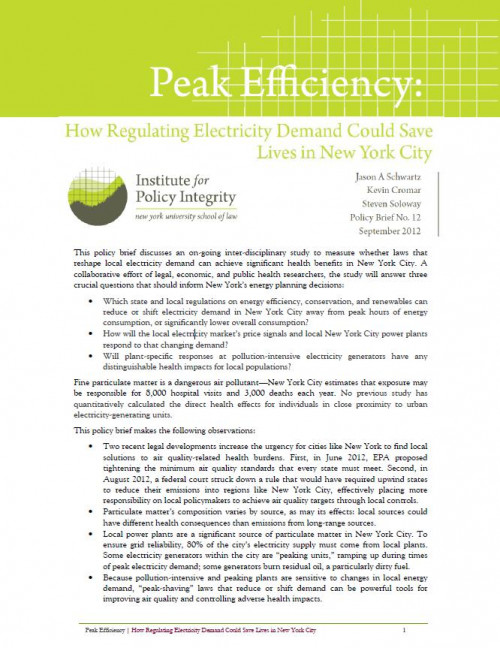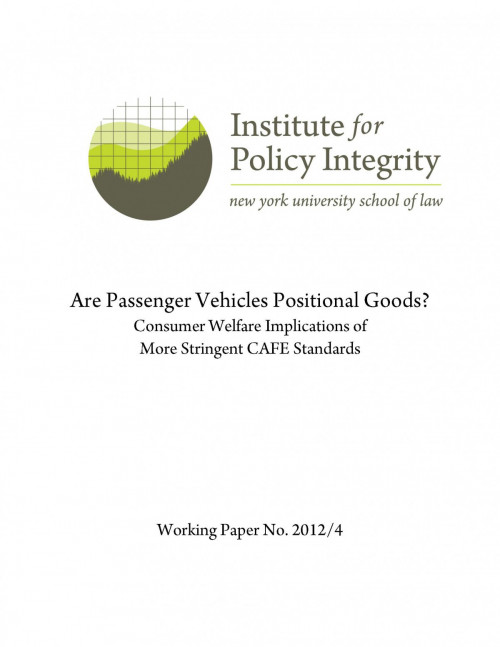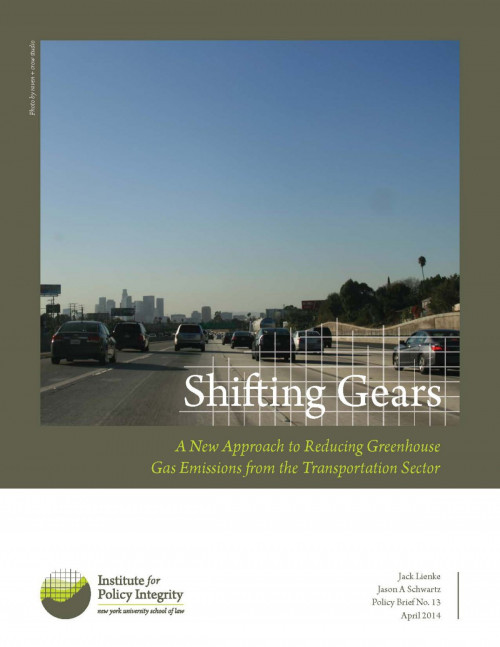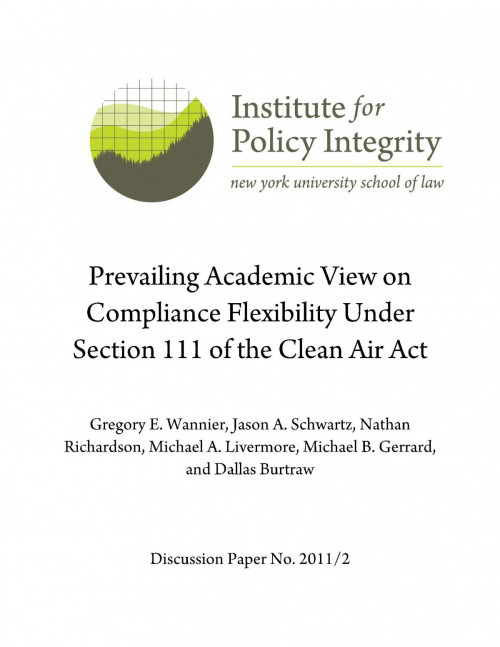-

Peak Efficiency
How Regulating Electricity Demand Could Save Lives in New York City
This policy brief discusses an on-going inter-disciplinary study to measure whether laws that reshape local electricity demand can achieve significant health benefits in New York City. A
collaborative effort of legal, economic, and public health researchers, the study will answer crucial questions that should inform New York’s energy planning decisions -
EPA and DOT Finalize 2017-2025 Fuel Economy Standards
The DOT and EPA finalized fuel efficiency standards today for cars and light duty trucks, increasing fuel efficiency to 54.5 mpg by Model Year 2025. The agencies calculate that consumer savings under the new standards will be comparable to lowering the price of gasoline by $1 per gallon by 2025.
-
Comments to EPA on Adding Flexibility to Greenhouse Gas Rules
Sadly, the idea that market forces can drive down the cost of public health regulation has lost favor in the past few years. The EPA’s long-delayed, first-ever greenhouse gas standards for new power plants (New Source Performance Standards or NSPS) offers an opportunity to make market mechanisms cool again.
-
Comments to DOE on Retrospective Review
Policy Integrity submitted comments to the Department of Energy (DOE) on its plan for periodic retrospective review pursuant to Executive Order 13563, which asks agencies to consider how best to promote retrospective analyses of existing rules. We found that the DOE’s plan could do a better job of updating and expanding regulations to enhance net benefits rather than just minimization of compliance burdens and administrative cost cutting, which the plan largely focuses on.
-
Letter to EPA on Stormwater Regulations
Today, EPA was supposed to propose rules to curb stormwater run-off—the murky, polluted water that gushes into rivers and oceans after heavy rains. They now say the proposal will come in May.
-
EPA Releases NSPS for Power Plants
The EPA released its first ever greenhouse gas standards for new power plants after a delay at the beginning of the year. The New Source Performance Standards (NSPS) limit emissions from new plants to 1,000 pounds of carbon dioxide per megawatt hour of electricity produced.
-
Comments to EPA and DOT on CAFE Standards for Model Years 2017-2025
Cars that hit the streets in 2017 through 2025 will run on far less fuel than they do now. Last summer, the Obama Administration announced a deal with automakers aiming to up the average to 56 miles per gallon and EPA-DOT proposed a new rule that would hold them to that standard.
-

Are Passenger Vehicles Positional Goods?
Consumer Welfare Implications of More Stringent CAFE Standards
Are Passenger Vehicles Positional Goods? examines to what degree vehicles generate consumption externalities that are not currently corrected for by the market, and whether a
uniform downward shift in the size of the passenger vehicle fleet will actually result in reduced consumer welfare. -

The Rebound Effect in a More Fuel Efficient Transportation Sector
Vehicle fuel efficiency improvements through Corporate Average Fuel Economy (CAFE) standards, may lead owners of more fuel-efficient cars may be driving more as their fuel cost per mile travelled decreases. It’s called the “rebound effect” and it has significant policy implications.
-

The Energy Paradox and the Future of Fuel Economy Regulation
Are the benefits of raising the fuel efficiency of America’s auto fleet greater than the costs? The answer may depend on whether or not there is an energy paradox.
Viewing recent projects in Climate and Energy Policy
